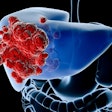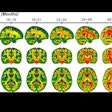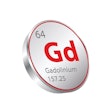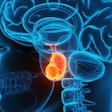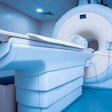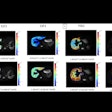MONTREAL - While significant progress is being made toward the use of 7-tesla MRI in the clinical setting, obstacles remain that make the ultrahigh-field modality a challenge, according to speakers at Wednesday's session of the International Society for Magnetic Resonance in Medicine (ISMRM) annual meeting.
Among the advantages of 7-tesla MRI is the gain in signal-to-noise ratio, which enhances image quality by decreasing voxel size, said Dr. Christopher Hess, PhD, assistant professor of neuroradiology at the University of California, San Francisco (UCSF) and chief of neuroradiology at the San Francisco Veterans Affairs Medical Center. The advance translates into an approximately 15% reduction in voxel volume at 7-tesla MRI versus 3-tesla scanning.
Another advantage that is often overlooked is enhanced tissue contrast, and 7-tesla MRI also greatly improves spectral resolution in neuroradiology applications.
The downside of 7-tesla MRI, Hess said, "is almost as big as the upside, and it can be quite daunting." For example, the issue of specific absorption rates (SARs) makes spin-echo sequences very difficult to perform.
"We also have significant geometric distortion, and signal loss can occur," he added. " 'Hot and 'cool' spots happen because of nonuniformity of the main magnetic field."
Patients imaged
UCSF installed its 7-tesla scanner (Excite, GE Healthcare) in 2004 and has since upgraded the system to 32 channels from its original configuration of 16 channels. The ultrahigh-field scanner is also now capable of parallel imaging. Over the past seven years, UCSF has used its 7-tesla scanner to image approximately 300 patients for neuroradiology applications.
Because MR angiography is based on the difference of flowing unsaturated blood and saturated background tissue, longer T1-weighted imaging from the 7-tesla technology has enhanced image quality, with an approximate 20% reduction in background signal at 7 tesla compared to 3 tesla, Hess noted.
However, there still remains the issue of SAR in performing MR angiography at 7 tesla. "Any time we try to increase spatial resolution, we have to fight the concomitant increase in imaging time by using parallel imaging strategies," he said.
Future acceptance
The success of 7-tesla MRI in more mainstream imaging applications will depend on the modality's safety and efficacy and its ability to satisfy an unmet clinical need, added Dr. Michael Knopp, PhD, professor of radiology at Ohio State University (OSU) and principal investigator and director of OSU's Wright Center of Innovation in Biomedical Imaging.
"Just having marginal improvements over 3-tesla MRI technology will not be enough for the imaging community to embrace 7-tesla MRI as part of the clinical environment," Knopp said. "Marginal improvements are fine if they are in the same platform, but we need to do more [clinical applications] at 7 tesla."
To gain that widespread acceptance among the radiology community, 7-tesla MRI and ultrahigh-frequency MRI in general have "a tremendous opportunity" in the area of morphology, with enhanced image resolution combined with advancing radiofrequency (RF) coil technology.
"We have the opportunity to integrate functional information with morphology and drive them together toward molecular imaging," Knopp added. "That capability for noninvasive insight allows us a better understanding of the pathophysiology of disease."
Regulatory status
Currently, no 7-tesla MRI scanner is approved for clinical use by the U.S. Food and Drug Administration (FDA). All patient studies are considered investigational, require approval by each site's institutional review board (IRB), and must adhere to IRB protocols.
One element of the regulatory approval process is for the FDA to determine if 7-tesla MRI poses a "significant risk" to patients.
Dr. Lucie Yang from the FDA's Division of Medical Imaging Products, part of the Center for Drug Evaluation and Research (CDER), told ISMRM attendees that current agency regulations only consider magnet strength greater than 8 tesla a significant risk.
"For the most part, 7-tesla MRI trials will not be considered a significant-risk trial," she said. If 7-tesla MRI does not pose a significant risk, the device is awarded an approved investigational device exemption (IDE) application.
| Hess receives research support from GE Healthcare. |


.fFmgij6Hin.png?auto=compress%2Cformat&fit=crop&h=100&q=70&w=100)


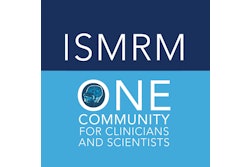

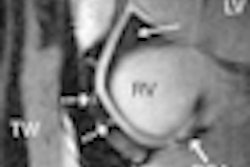
.fFmgij6Hin.png?auto=compress%2Cformat&fit=crop&h=167&q=70&w=250)




